We have to move toward specificity, intelligence, facts, proof, and mutual affection. What I think people have to do now is be very, very assertive about the utter essentiality of intellectual undertakings.
GEORGE SAUNDERSThe book says [Lincoln in the Bardo],”I really need this sci-fi device of a ghost inhabiting another person.” You say okay kind of begrudgingly. So the structure seemed informed by need and efficiency.
More George Saunders Quotes
-





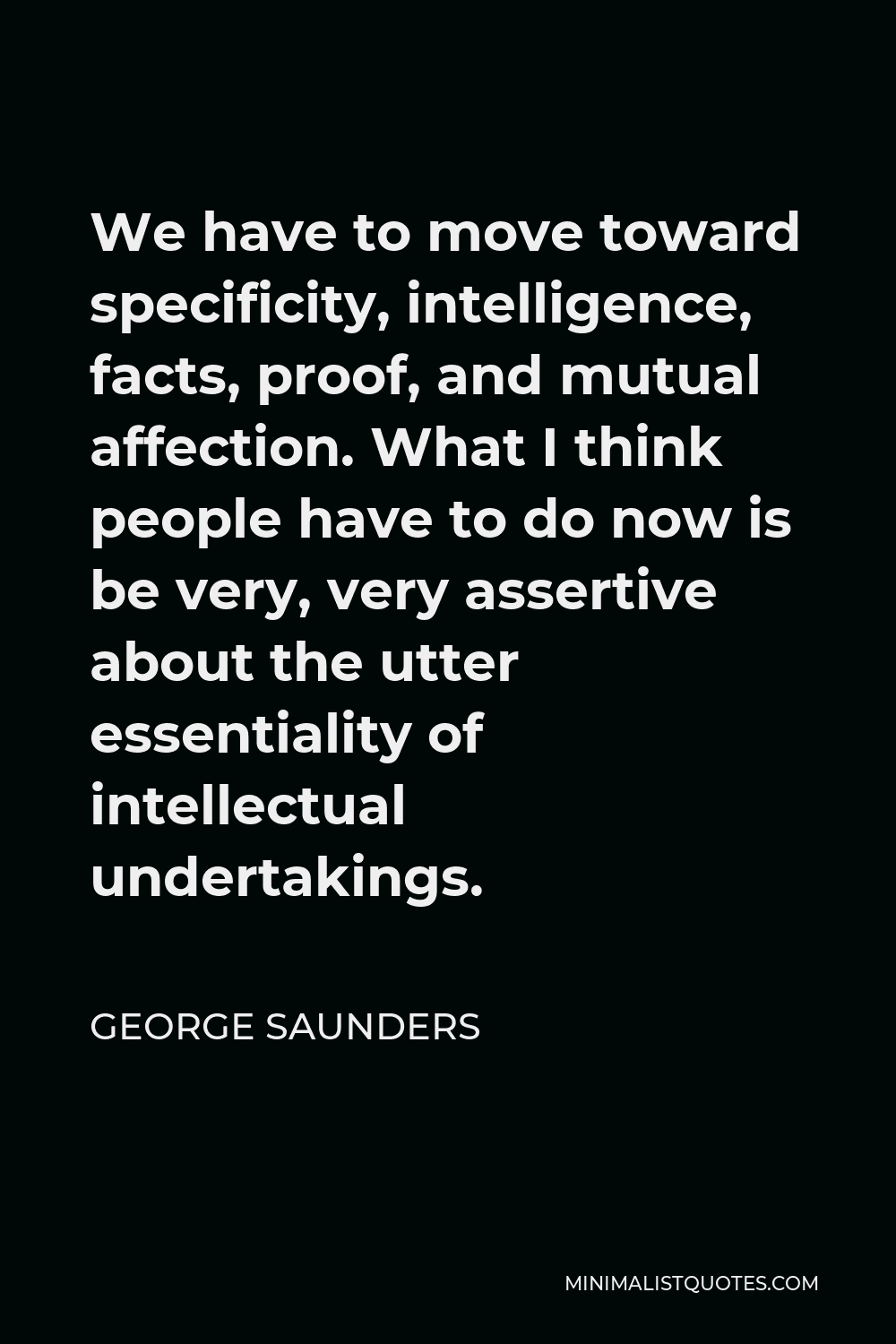
-





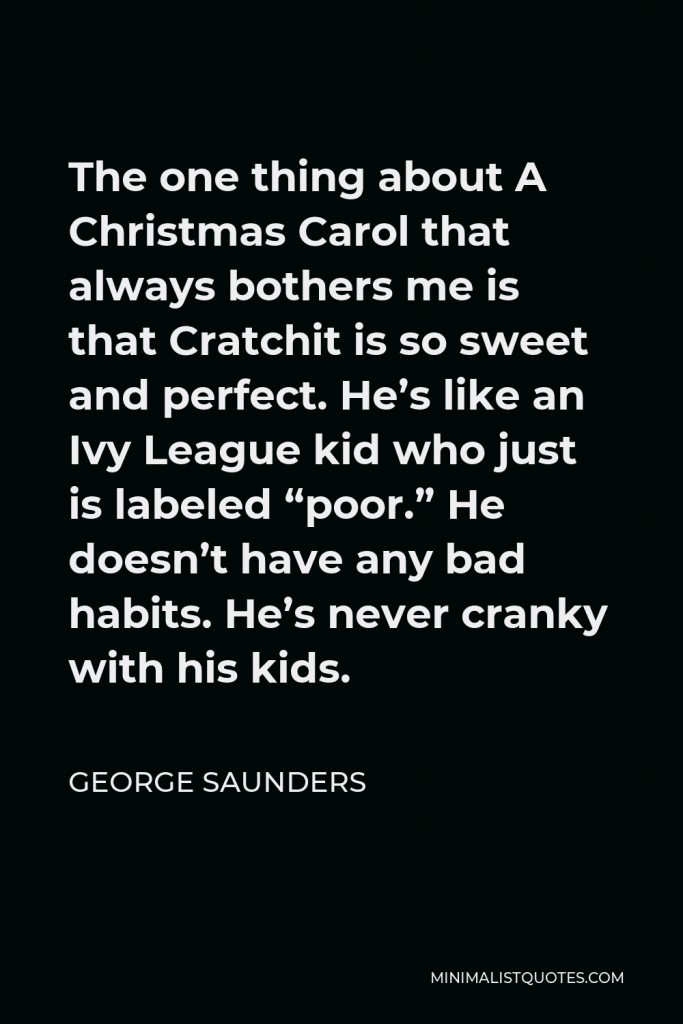

The one thing about A Christmas Carol that always bothers me is that Cratchit is so sweet and perfect. He’s like an Ivy League kid who just is labeled “poor.” He doesn’t have any bad habits. He’s never cranky with his kids.
GEORGE SAUNDERS -





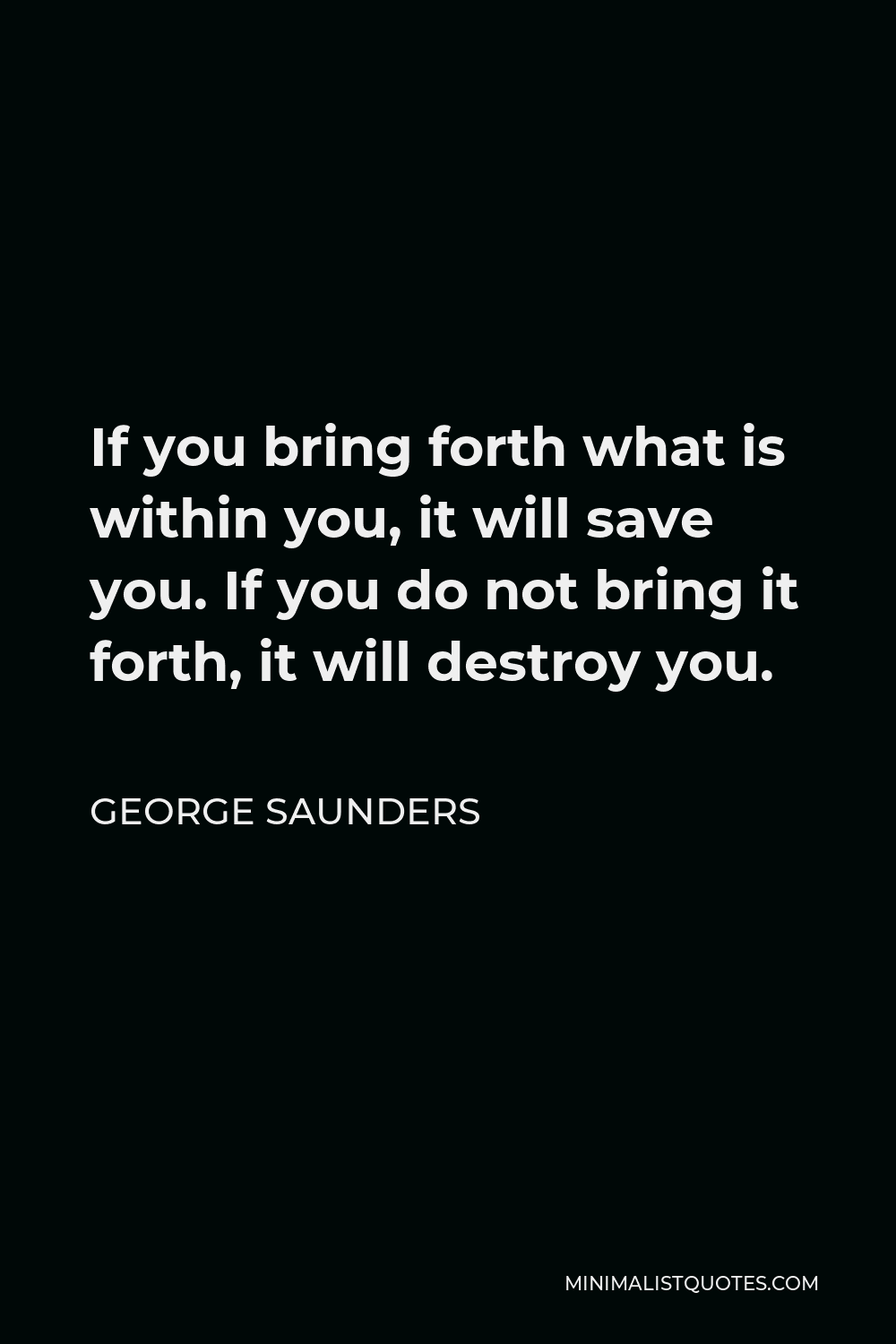
If you bring forth what is within you, it will save you. If you do not bring it forth, it will destroy you.
GEORGE SAUNDERS -





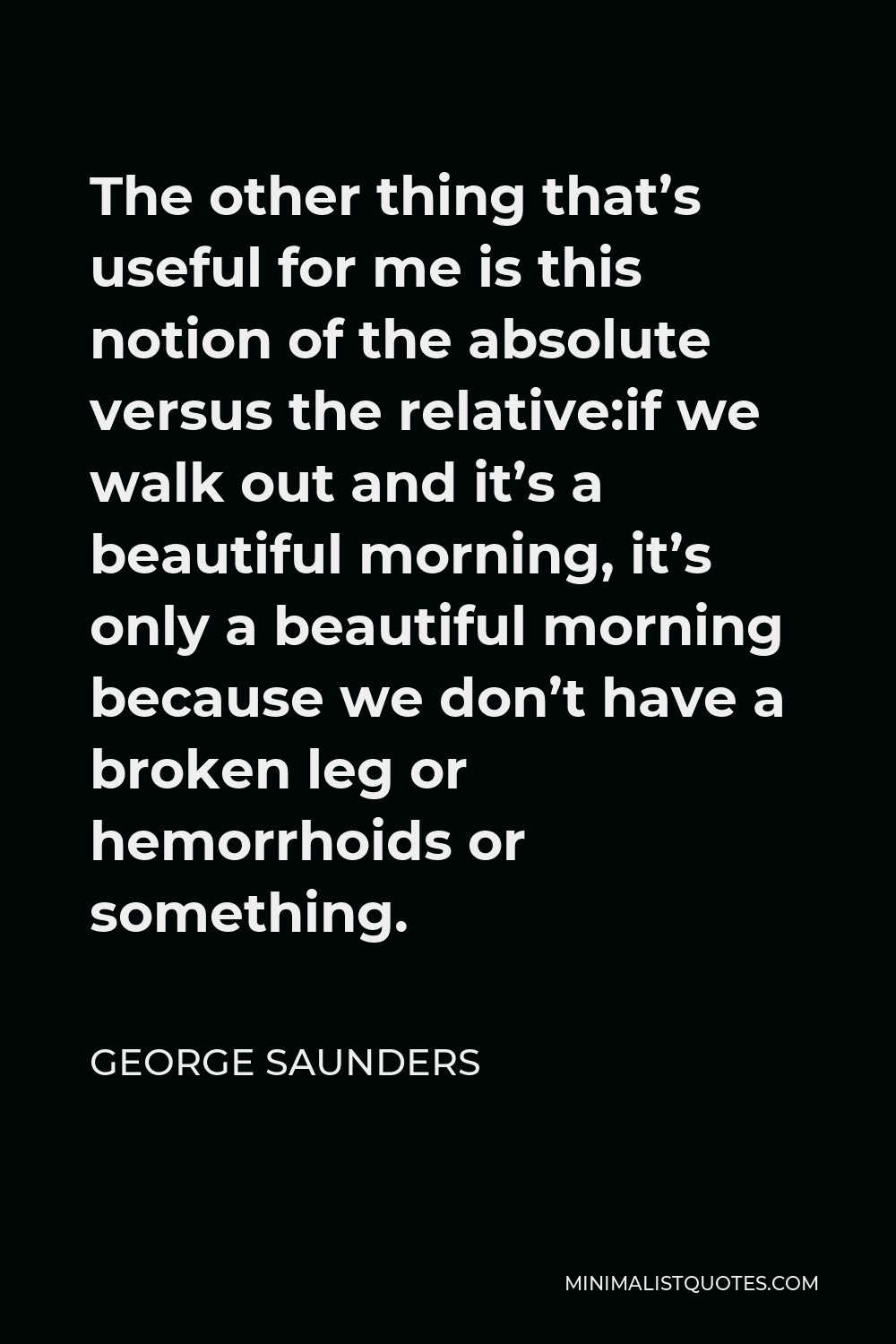
The other thing that’s useful for me is this notion of the absolute versus the relative:if we walk out and it’s a beautiful morning, it’s only a beautiful morning because we don’t have a broken leg or hemorrhoids or something.
GEORGE SAUNDERS -







When somebody you’ve known for 20 years, and with whom you have a full context, winks at you or whatever, it can be huge. I think in a sense what you’re trying to re-create in fiction is that.
GEORGE SAUNDERS -





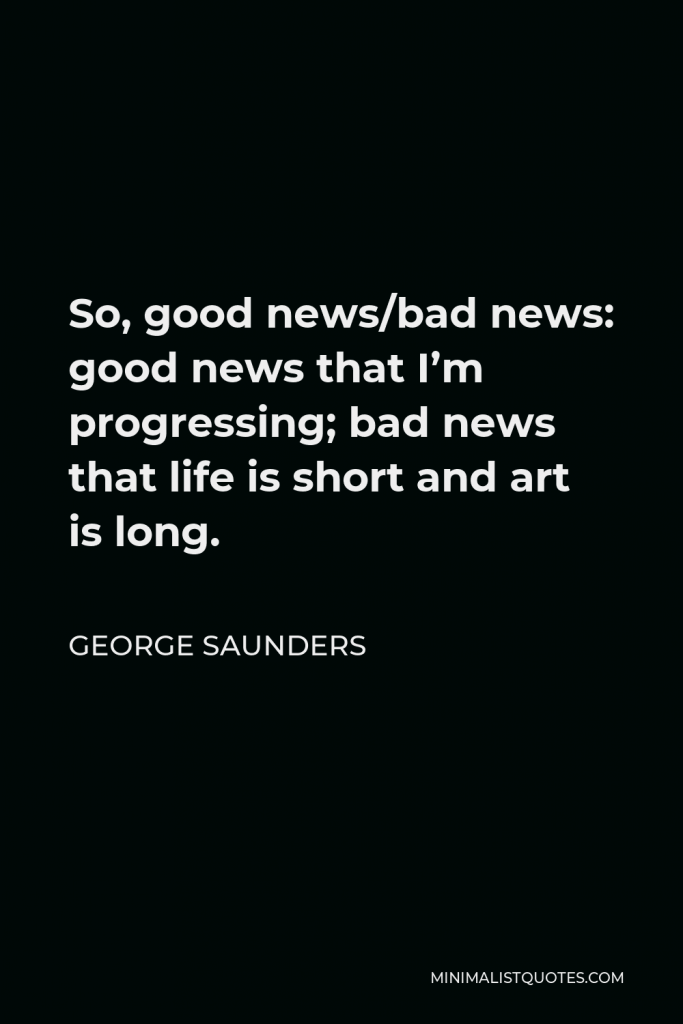

So, good news/bad news: good news that I’m progressing; bad news that life is short and art is long.
GEORGE SAUNDERS -





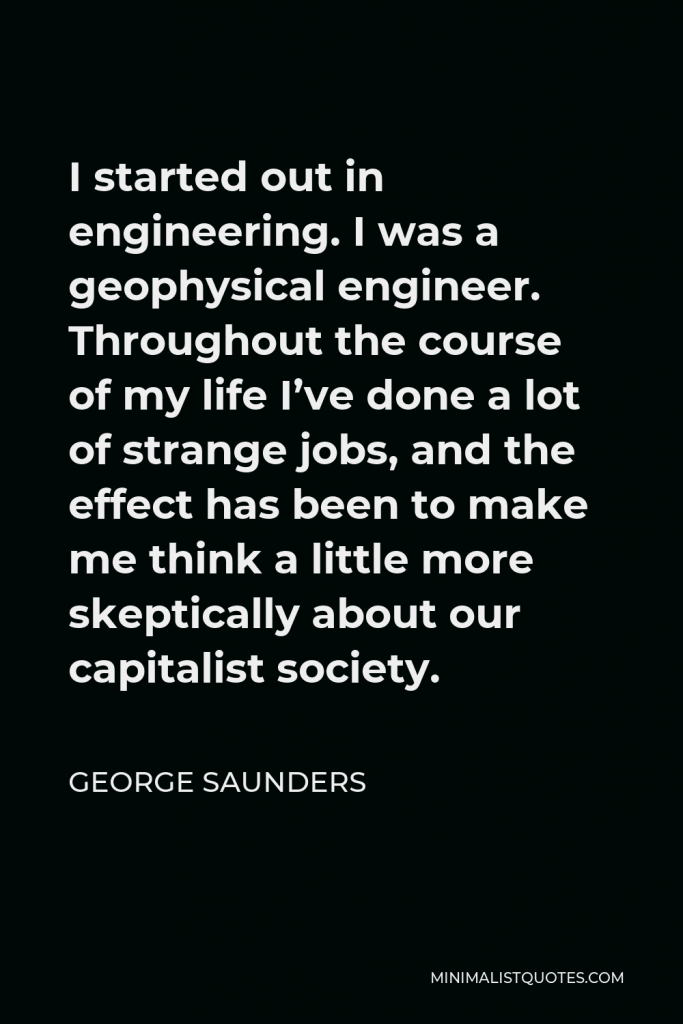

I started out in engineering. I was a geophysical engineer. Throughout the course of my life I’ve done a lot of strange jobs, and the effect has been to make me think a little more skeptically about our capitalist society.
GEORGE SAUNDERS -





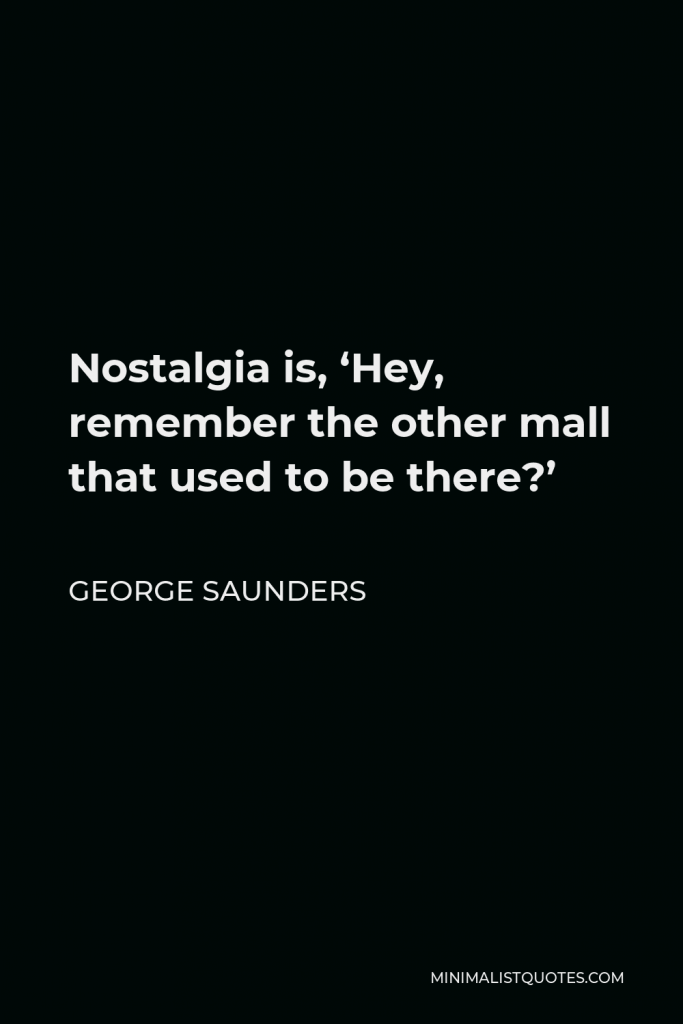

Nostalgia is, ‘Hey, remember the other mall that used to be there?’
GEORGE SAUNDERS -





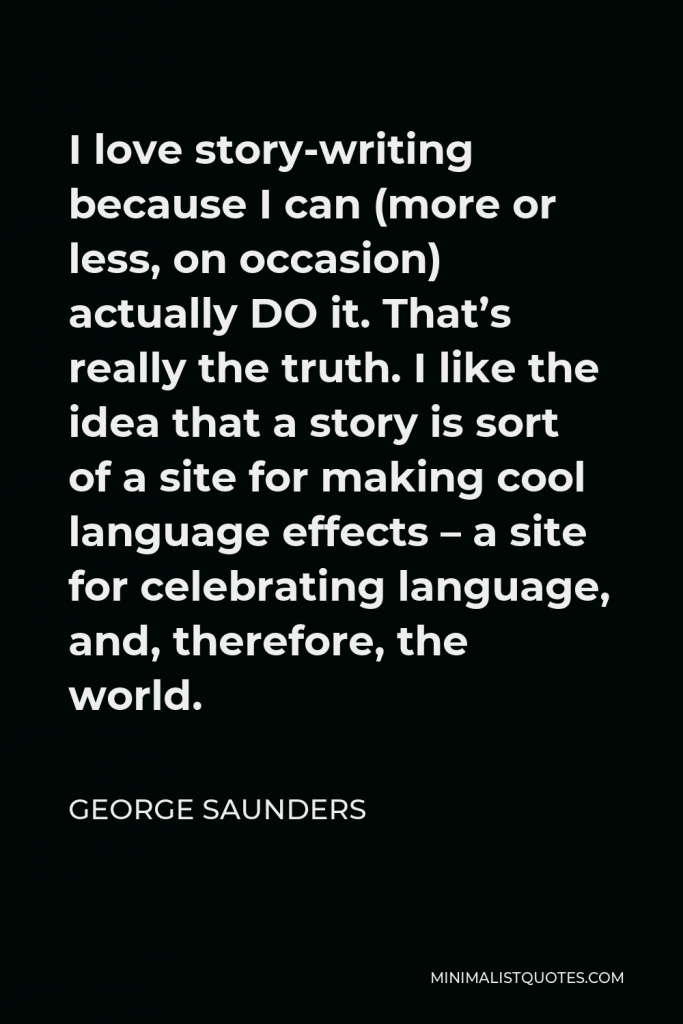

I love story-writing because I can (more or less, on occasion) actually DO it. That’s really the truth. I like the idea that a story is sort of a site for making cool language effects – a site for celebrating language, and, therefore, the world.
GEORGE SAUNDERS -





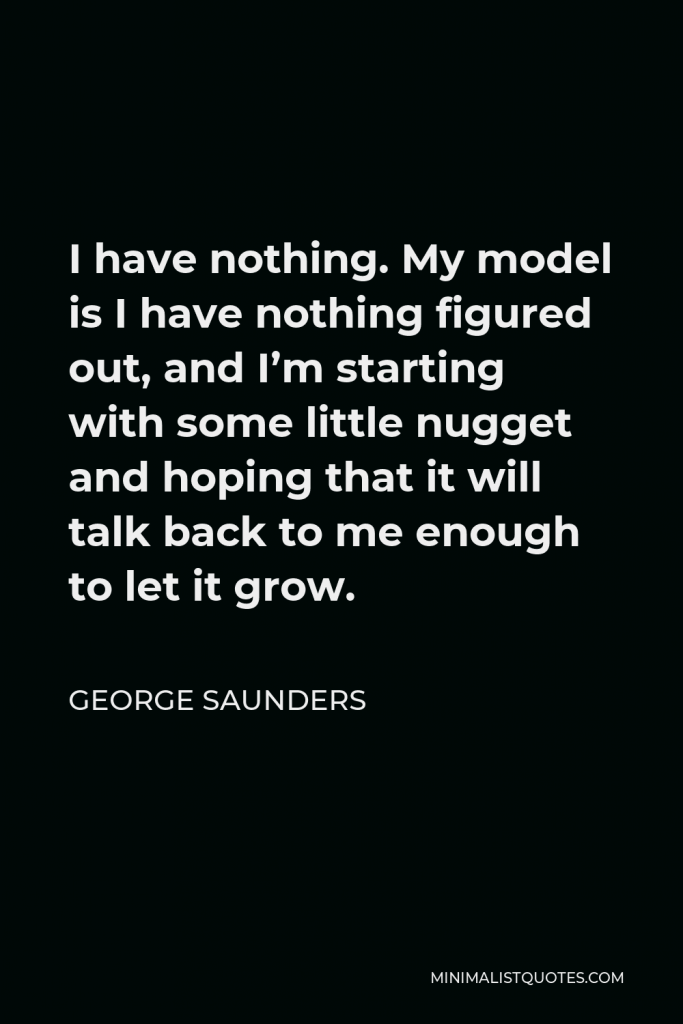

I have nothing. My model is I have nothing figured out, and I’m starting with some little nugget and hoping that it will talk back to me enough to let it grow.
GEORGE SAUNDERS -





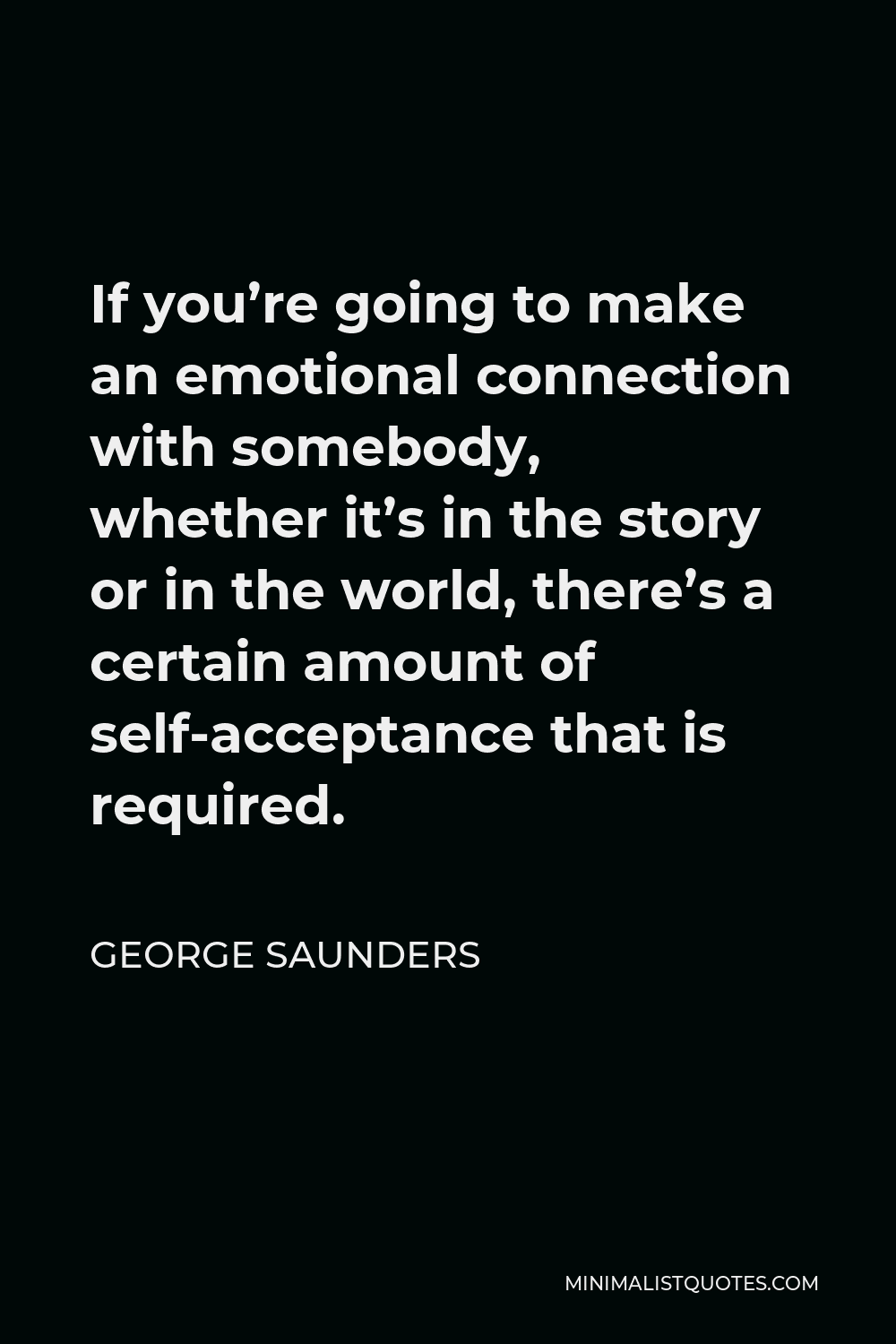
If you’re going to make an emotional connection with somebody, whether it’s in the story or in the world, there’s a certain amount of self-acceptance that is required.
GEORGE SAUNDERS -





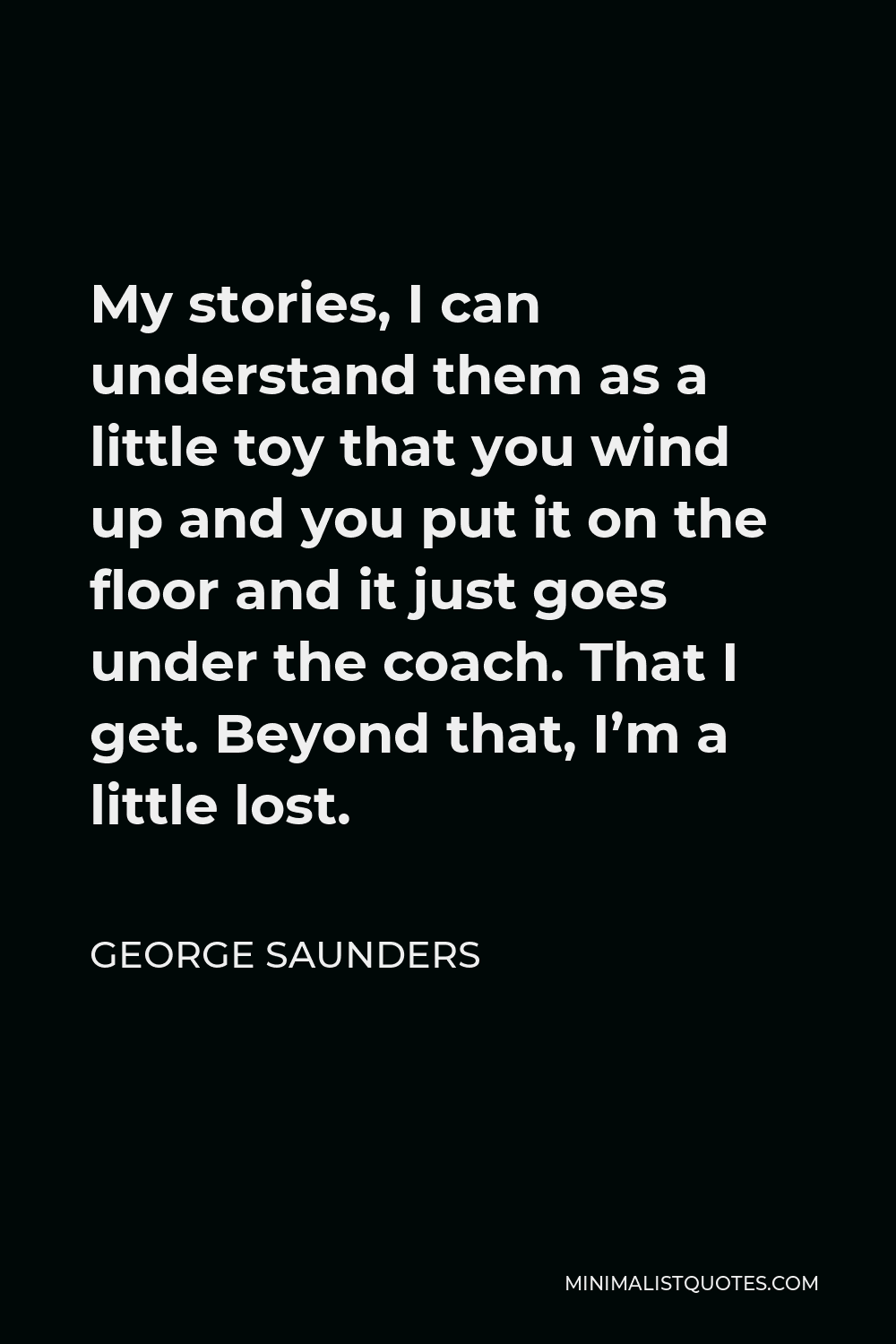
My stories, I can understand them as a little toy that you wind up and you put it on the floor and it just goes under the coach. That I get. Beyond that, I’m a little lost.
GEORGE SAUNDERS -







That’s the only way that I can figure out how to live, is to say, “Well, I don’t know what this adds up to, but I can do the best I can.”
GEORGE SAUNDERS -





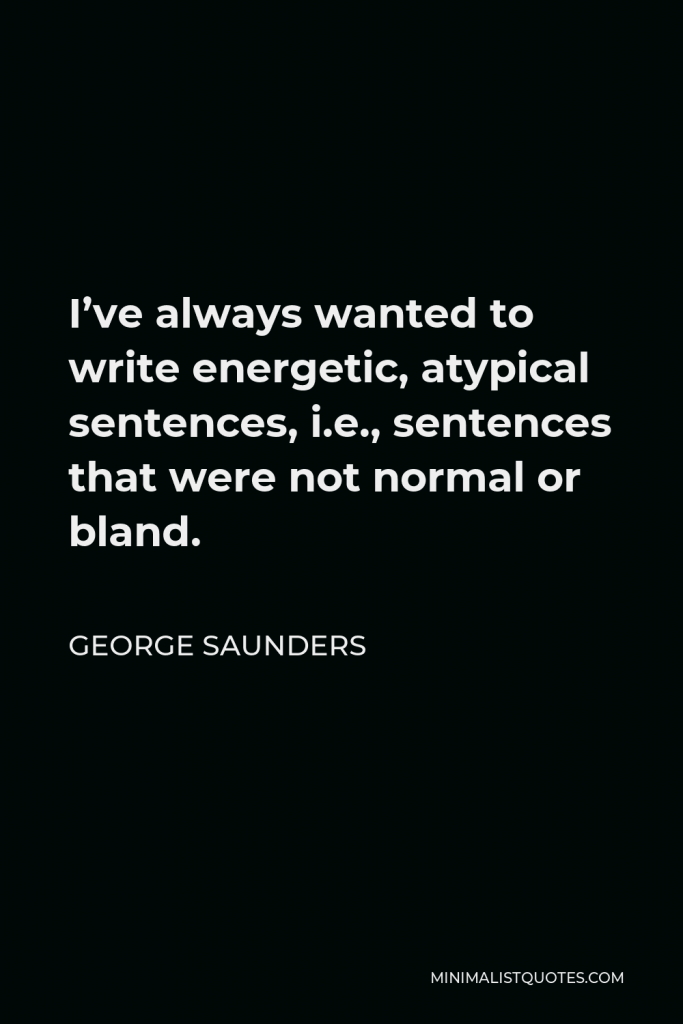

I’ve always wanted to write energetic, atypical sentences, i.e., sentences that were not normal or bland.
GEORGE SAUNDERS -





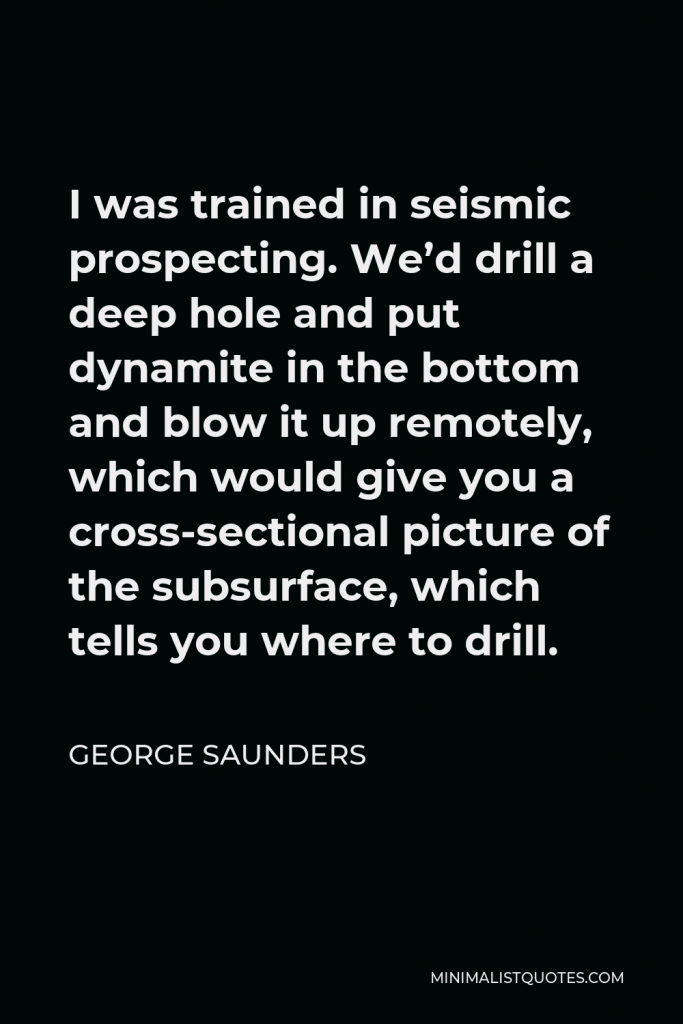

I was trained in seismic prospecting. We’d drill a deep hole and put dynamite in the bottom and blow it up remotely, which would give you a cross-sectional picture of the subsurface, which tells you where to drill.
GEORGE SAUNDERS -





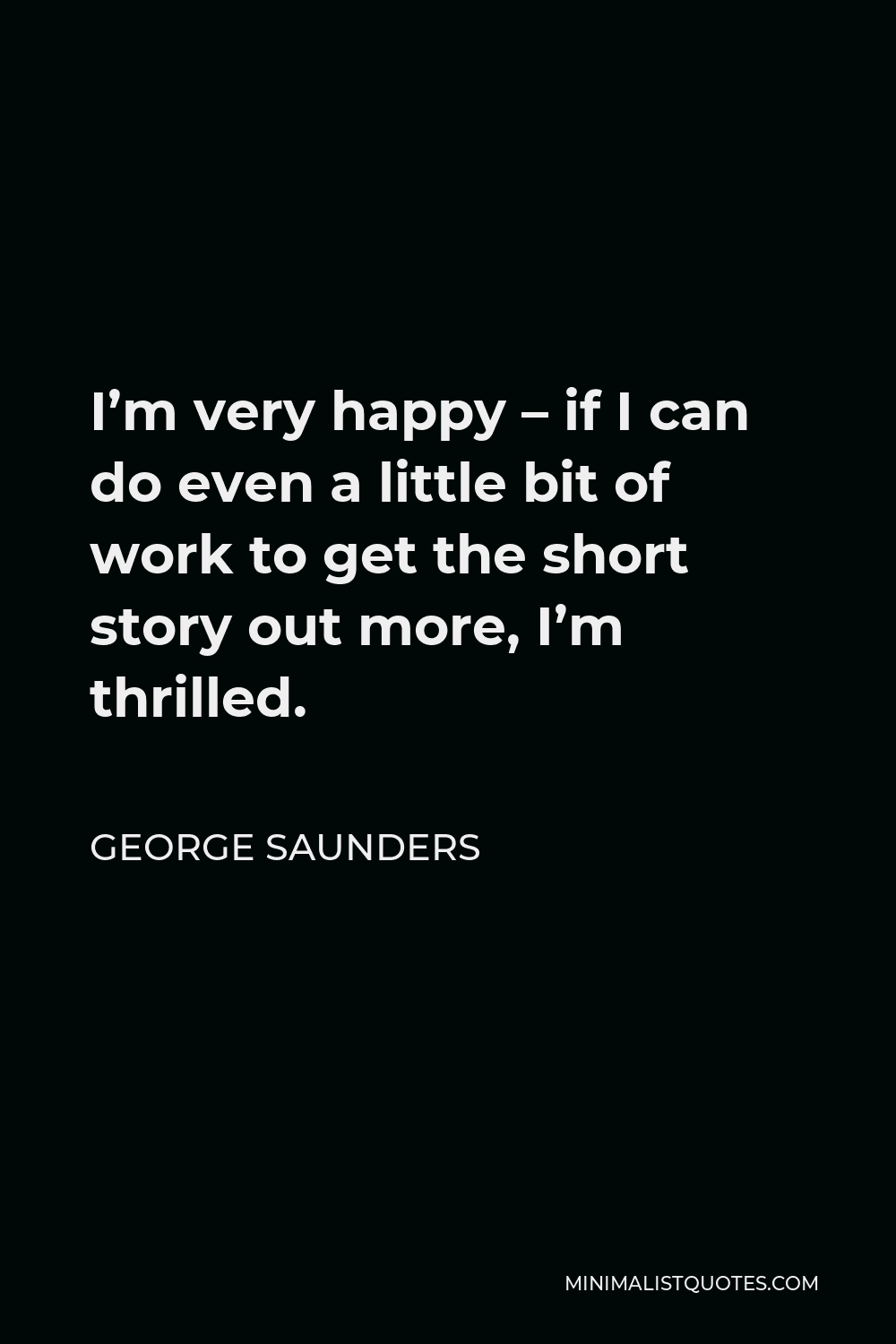
I’m very happy – if I can do even a little bit of work to get the short story out more, I’m thrilled.
GEORGE SAUNDERS
![George Saunders Quote - The book says [Lincoln in the Bardo],”I really need this sci-fi device of a ghost inhabiting another person.” You say okay kind of begrudgingly. So the structure seemed informed by need and efficiency.](https://minimalistquotes.com/images/the-book-says-lincoln-in-the-bardoi-really-need-th.jpg)
![George Saunders Quote - The book says [Lincoln in the Bardo],”I really need this sci-fi device of a ghost inhabiting another person.” You say okay kind of begrudgingly. So the structure seemed informed by need and efficiency.](https://minimalistquotes.com/images/grey-the-book-says-lincoln-in-the-bardoi-real.jpg)
![George Saunders Quote - The book says [Lincoln in the Bardo],”I really need this sci-fi device of a ghost inhabiting another person.” You say okay kind of begrudgingly. So the structure seemed informed by need and efficiency.](https://minimalistquotes.com/images/blue-the-book-says-lincoln-in-the-bardoi-real.jpg)
![George Saunders Quote - The book says [Lincoln in the Bardo],”I really need this sci-fi device of a ghost inhabiting another person.” You say okay kind of begrudgingly. So the structure seemed informed by need and efficiency.](https://minimalistquotes.com/images/red-the-book-says-lincoln-in-the-bardoi-real.jpg)
![George Saunders Quote - The book says [Lincoln in the Bardo],”I really need this sci-fi device of a ghost inhabiting another person.” You say okay kind of begrudgingly. So the structure seemed informed by need and efficiency.](https://minimalistquotes.com/images/brown-the-book-says-lincoln-in-the-bardoi-real.jpg)
![George Saunders Quote - The book says [Lincoln in the Bardo],”I really need this sci-fi device of a ghost inhabiting another person.” You say okay kind of begrudgingly. So the structure seemed informed by need and efficiency.](https://minimalistquotes.com/images/white-the-book-says-lincoln-in-the-bardoi-real.jpg)

